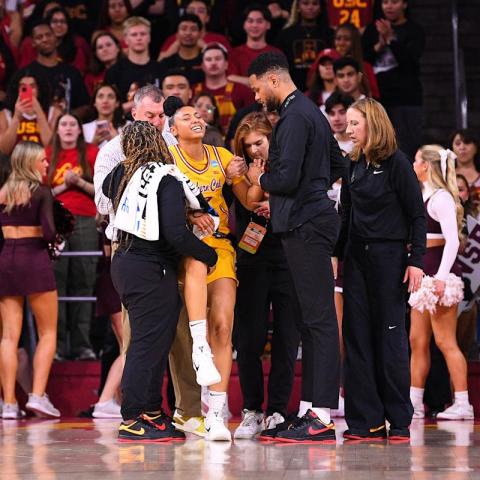As college athletes face more contract disputes, a new service called FAIR Sports is stepping up to help. This cost-effective, out-of-court platform aims to resolve conflicts without the hassle of traditional legal battles.
FAIR Sports is launching this spring, just as the federal court is set to approve the House v. NCAA settlement. Founded in November as a for-profit public benefit corporation in Delaware, FAIR Sports will offer arbitration and mediation exclusively for athlete issues that fall outside NCAA oversight. This includes disputes with schools, NIL collectives, and other third parties.
The organization was co-founded by Tim Nevius, a former NCAA investigator who became a champion for college athletes, and sports lawyer Tye Gonser. Nevius previously looked into the notable “tattoo gate” scandal at Ohio State. Now, he runs a law firm focused on assisting college athletes. Gonser, based in Los Angeles, has represented high-profile athletes, including NFL players, and co-wrote a key paper on NIL policies.
Before the House settlement was officially announced, Nevius and Gonser had already begun brainstorming ideas for FAIR Sports. Nevius noted that many NIL agreements hinted at potential disputes, especially as college sports continue to evolve into a more revenue-driven model. He sees arbitration as a vital tool for these new contracts.
FAIR Sports wants to be the go-to service for arbitration related to the settlement, but that will be just a small part of its work. The service aims to be an alternative dispute resolution (ADR) venue for various athlete contracts. Some revenue-sharing agreements already designate FAIR Sports as the arbitration provider, though cases can also be referred later if both parties agree.
While fees will depend on the specifics of each case, Nevius emphasized that keeping costs low is essential. FAIR Sports aims to make arbitration affordable and efficient for all involved, believing this service is crucial for the future of college sports.
FAIR Sports has launched its website and assembled a team of respected advisors, including former Notre Dame athletic director Jack Swarbrick and ex-NCAA official Oliver Luck. However, all arbitrations will be managed by independent third parties called “neutrals.” They have already appointed 11 neutrals, including notable figures like Gabe Feldman, Jeffrey Mishkin, and Richard McLaren. Nevius mentioned that they plan to expand this roster soon.
Historically, alternative dispute resolution in sports has been dominated by organizations like the American Arbitration Association (AAA) and JAMS. Recently, the U.S. Olympic and Paralympic Committee switched from AAA to a new company called New Era ADR, which is eager to get involved in college athlete revenue-sharing disputes.
Since the NCAA’s interim NIL policy started in July 2021, many controversies have arisen regarding athlete agreements. Currently, two lawsuits in Florida involve athletes suing their coaches but face hurdles due to state protections that limit lawsuits against public officials.
This environment may make public schools hesitant to include explicit arbitration language in revenue-sharing contracts. For instance, one Big Ten school’s agreement used a league template that suggested trying “good faith negotiations” instead of arbitration before heading to court.
Source link
House v. NCAA,NCAA compliance,NIL










